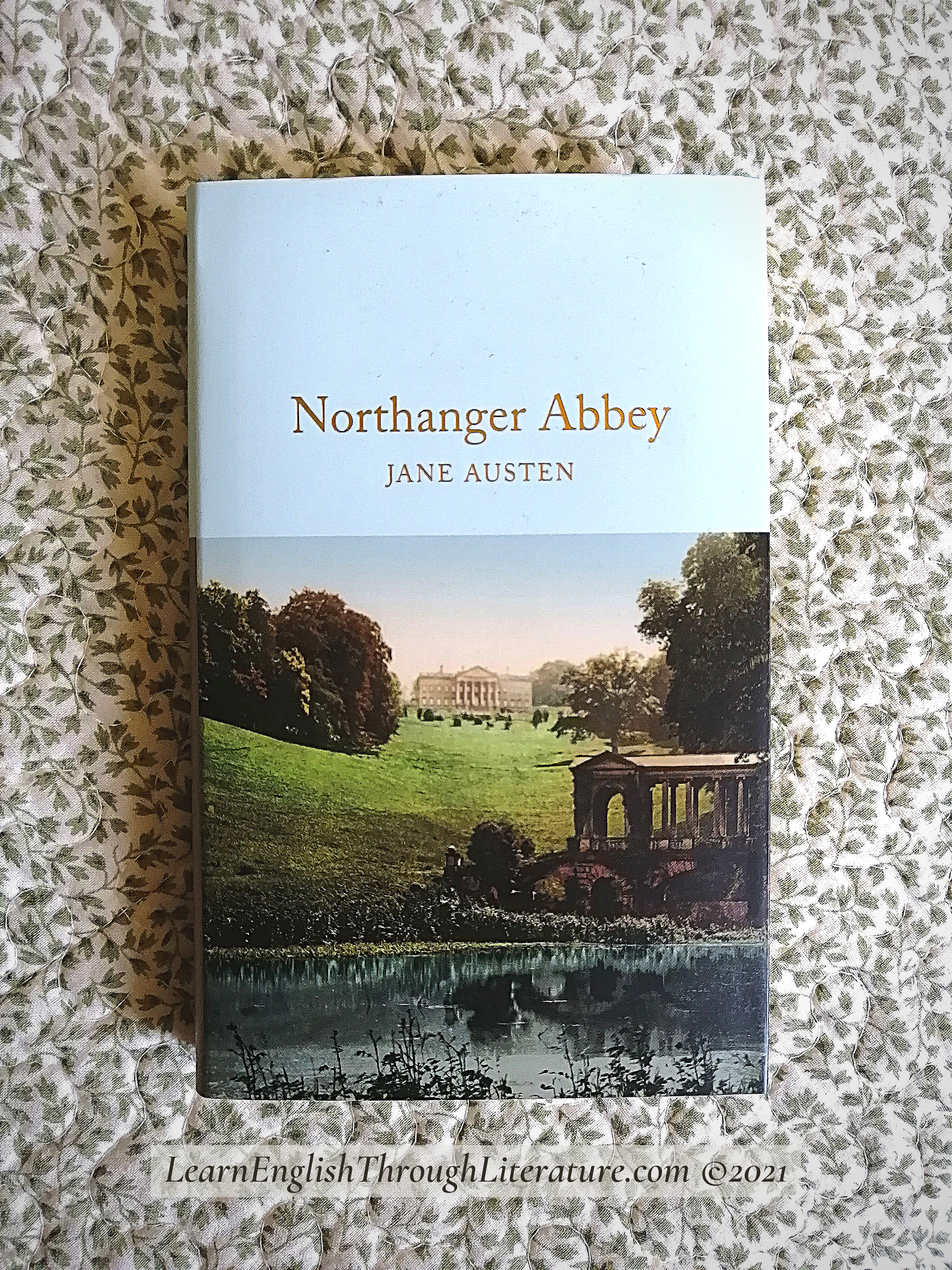📗 Thorpe told her it would be in vain to go after the Tilneys; they were turning the corner into Brock Street, when he had overtaken them, and were at home by this time.
“Then I will go after them,” said Catherine; “wherever they are I will go after them. It does not signify talking. If I could not be persuaded into doing what I thought wrong, I never will be tricked into it.”
And with these words she broke away and hurried off.
Thorpe would have darted after her, but Morland withheld him.
“Let her go, let her go, if she will go.”
“She is as obstinate as —” Thorpe never finished the simile, for it could hardly have been a proper one.
– Jane Austen, Northanger Abbey (1817)
…
WHAT is a simile? 🤔
✍️ A simile is a turn of phrase (it can be a fixed expression or one that you invent on the spot) that describes the similarity between two things, using the words ‘as’ or ‘like’. For example: ‘After running the marathon, Tom was as hungry as a bear’ or ‘Tom was like a hungry bear’.
👉 It is different from a metaphor which doesn’t use either ‘as’ or ‘like’: ‘After running the marathon, Tom was a hungry bear!’
WHY do we use similes in English? 🧐
A bit like John Thorpe in the quotation above, we use them to be more persuasive, expressive, or memorable. Remember, they help to fix an idea in a person’s mind more effectively than just describing something with adjectives (e.g. ‘After running the marathon, Tom was very hungry’).
I had the idea for today’s Mini-Lesson Monday from re-reading Austen’s Northanger Abbey (1817). It is a book that humours (goes along with the wishes of someone to keep them content) our fascination with imaginary worlds and is full of references to literature and literary language.
While most of the popular similes that native English speakers use are not necessarily literary in origin, we do find many of them sprinkled throughout literature (especially in the conversations of characters, like John Thorpe or Henry Tilney in Northanger Abbey).
In today’s Lesson, we will look at over 20 similes that are common in English, which I have arranged according to type to help you memorise and use them more readily.
👉 Side note: Can you guess what was the simile that John Thorpe was going to use to describe Catherine (in the opening quotation)?
It was ‘as stubborn as a mule’ – as Austen puts it, ‘hardly … a proper one’ to describe a lady you want to impress!
…
📝 SIMILES WITH REFERENCE TO ANIMALS OR BIRDS
- as busy as a bee: very busy
e.g. ‘The school principal was as busy as a bee before the school reopened in September.’
- as blind as a bat: very blind or shortsighted
e.g. ‘Unfortunately I am as blind as a bat when I don’t have my glasses on.’
- as brave as a lion: very brave
e.g. ‘She was not afraid of the bullies but was as brave as a lion.’
- as strong as an ox: very strong
e.g. ‘You have to be as strong as an ox to win those kinds of sports.’
- as innocent as a lamb: completely innocent
e.g. ‘It was clear that the child had been falsely accused of doing wrong – he was innocent as a lamb.’
- as happy as a lark: very happy and lighthearted
e.g. ‘I was as happy as a lark when I found out that I had passed my examinations.’
- as poor as a church mouse: very or extremely poor
e.g. ‘We were remembering our student days at university, how most of us were as poor as a church mouse.’
…
📝 SIMILES WITH REFERENCE TO OBJECTS
- as black as coal: very black or dark
e.g. ‘The room had no lighting in it; it was as black as coal.’
- as dead as a doornail: completely dead
e.g. ‘That animal species is now extinct, lost to us and as dead as a doornail.’
- as hard as nails: very hard (in terms of surfaces or consistency)
e.g. ‘We tried to warm and defrost the ice, but it is still as hard as nails.’
- as cold as ice: very, extremely cold (both literally and figuratively)
e.g. ‘Oh that room is as cold as ice!’ or ‘Miss Havisham could sometimes be as cold as ice to strangers.’
- as white as a ghost: very white and pale in colour
e.g., ‘The family who had gone into hiding for years looked as white as a ghost when they finally emerged.’
- like two peas in a pod: very close together
e.g. ‘The two girls were such close friends growing up and doing so many activities together, they were like two peas in a pod.’
- as light as a feather: very light
e.g. ‘I thought that box would be heavy but it is actually as light as a feather.’
…
Join me in Part 2 of this Lesson where we look at similes that refer to human characteristics and similes that describe abstract concepts – both very useful types of similes, so stay tuned!




